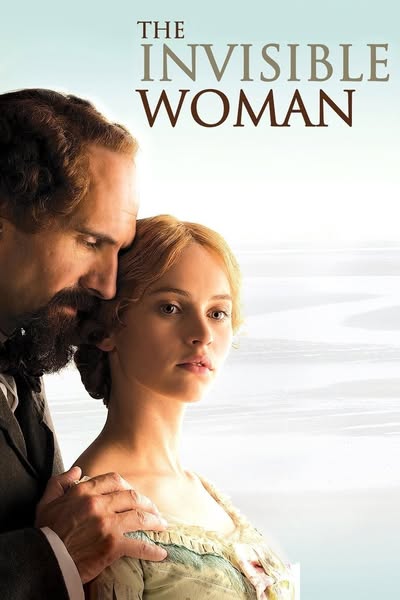The Invisible Woman (2013)

The Invisible Woman (2013) is a British historical drama film directed by and starring Ralph Fiennes. The film is based on the true story of Nelly Ternan, the mistress of the famous English writer Charles Dickens. The screenplay, written by Abi Morgan, is adapted from the novel The Invisible Woman: The Story of Nelly Ternan and Charles Dickens by Claire Tomalin, who also served as a consultant on the film.

Plot:
The story takes place in Victorian England and focuses on the secret and illicit relationship between the celebrated novelist Charles Dickens (Ralph Fiennes) and Nelly Ternan (Felicity Jones), a young actress. Nelly, who is only in her twenties, becomes involved with Dickens during a time when he is married with children. The film explores the emotional complexities of their relationship, as well as the societal pressures and consequences Nelly faces for being involved with a famous married man. It also delves into the sacrifices and emotional toll this affair takes on Nelly’s life, as she struggles to remain in the shadows and protect her privacy and reputation.
Nelly’s character is portrayed as a woman who, despite the passion and intellectual connection she shares with Dickens, is forced to live a life of secrecy and restraint, largely due to the constraints imposed by the rigid social and gender norms of the time. The film shows how, despite being a part of Dickens’s life for many years, Nelly is largely forgotten by history, remaining an “invisible” woman in the public’s perception.
Themes:
- Love and Secrecy: The film explores the tension between personal desires and societal expectations, showing how a woman like Nelly is forced to conceal her relationship with Dickens for fear of ruining her reputation.
- The Power Dynamics of Relationships: The film emphasizes the power imbalance in the relationship between Dickens, a prominent and celebrated man, and Nelly, who is relatively unknown and has to hide in the shadows.
- Fame and Public Scrutiny: Dickens’s public persona contrasts with his private life, showcasing the disparity between how he is perceived by society and the complexity of his personal relationships.
- Social Norms and Gender Roles: Nelly’s role in the relationship highlights the constraints placed on women during the Victorian era, especially when it comes to issues of love, infidelity, and social standing.

Performances:
- Ralph Fiennes plays Charles Dickens with depth, capturing both the charisma of the famous author and his emotional turmoil. His portrayal of Dickens explores the writer’s vulnerability and the contradictions within his character.
- Felicity Jones plays Nelly Ternan with subtlety and grace, showing the inner conflict of a woman trapped by the social limitations of her time. Her performance has been praised for bringing warmth and empathy to a character who has been overlooked in historical accounts.











